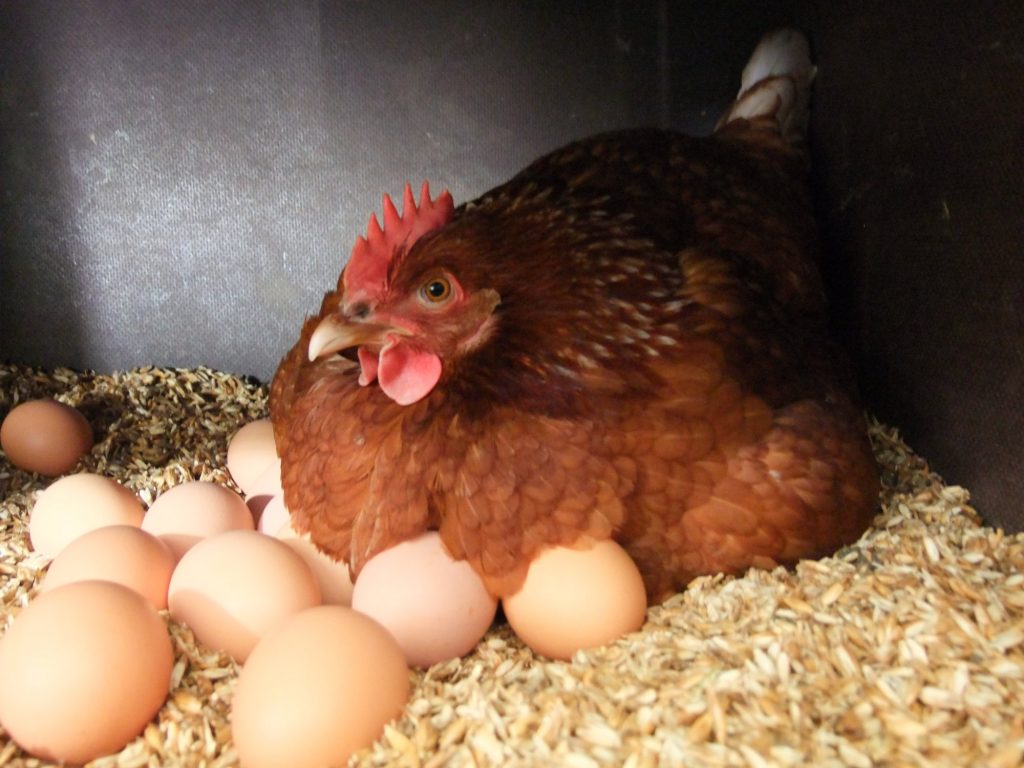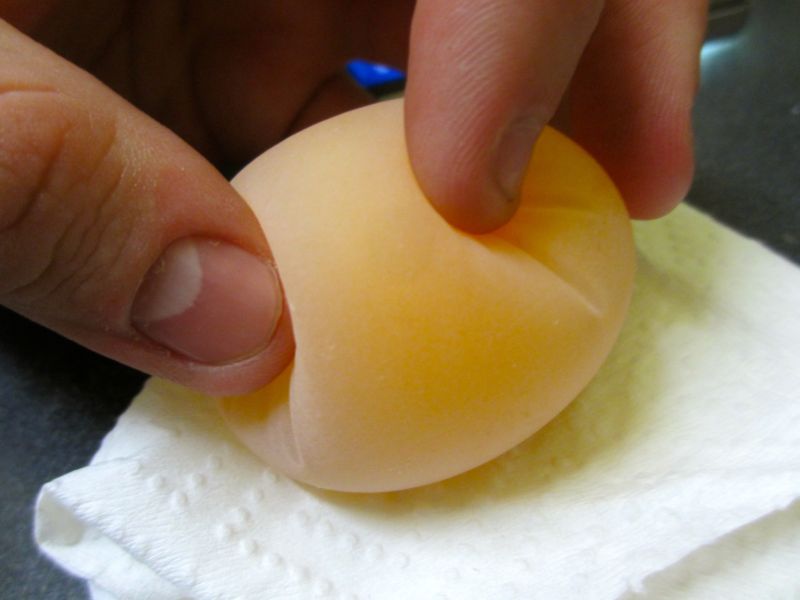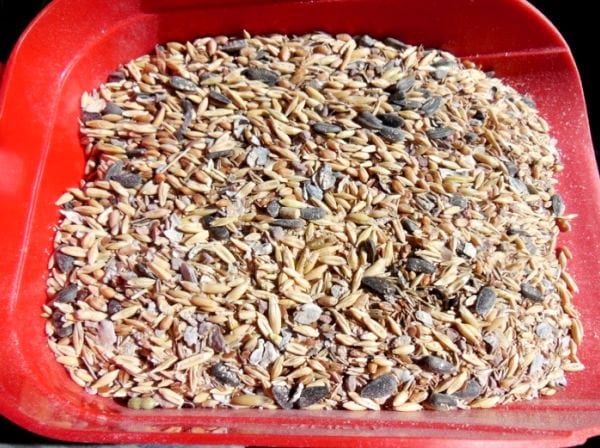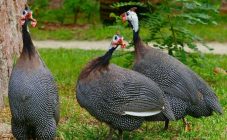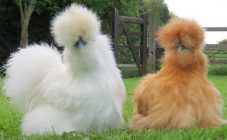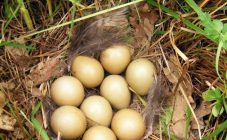Sometimes poultry farmers find eggs in the nests of chicken coops that do not have shells. Their appearance is the same as that of normal testicles, but the surface is very soft to the touch. This is the first sign that the hens are in trouble. Why does a chicken lay eggs without shells? This problem worries everyone who breeds birds. There are many reasons why chicken eggs have thin shells. To fix this problem, you need to know exactly what caused it.
Conditions of keeping chickens
To understand why chickens lay eggs without shells, how to fix this, you need to thoroughly study the conditions of their keeping. They must meet certain requirements. For the construction of a poultry house, you can use any materials that are available in the household, but experienced breeders recommend using exclusively natural materials for construction. The building must be strong and reliable, a ventilation system and thermal insulation are required.
For the equipment of the ventilation system in the ceiling of the room, it is necessary to make a hatch with doors, which, if necessary, can be easily and quickly opened or closed. It is possible to provide young birds with comfortable conditions for staying in the chicken coop only if it is equipped with an additional lighting system. For this you can use fluorescent lamps.
In order for chickens to grow healthy, sanitary standards must be observed in the barn. To do this, the room must be periodically cleaned and disinfected with a weak solution of lime or potassium permanganate.
The floor should be equipped at a slight angle (25-35 degrees). Thanks to this, cleaning the chicken coop will become easier and more convenient. To prevent chickens from freezing during cold weather, it is covered with hay or dry grass. The litter changes as it gets dirty.
In the hen house, bird roosts are arranged, which are used for sleeping. To do this, you can use wooden boards 40 cm wide. The perches are mounted at a height of 35-50 cm from the floor level. To save space in the room, perches can be built in several tiers.
The house should have several nests for laying hens. They can be made from wooden boxes, the cavity of which is covered with straw.
Chickens must have a place to walk. This area is fenced off with a fence or mesh. The height of the fence should be such that birds cannot fly over it. Experienced breeders advise sowing the area with perennial grasses. This will enable the chickens to self-feed the essential minerals.
To feed chickens, it is necessary to use combined feeds that contain the required amount of minerals and trace elements. Minimize the amount of food from your home kitchen.
Why chickens lay eggs without shells
In birds that live in the wild, it is very rare for hens to lay eggs without shells. This is due to the fact that wild chickens lay eggs only for the continuation of offspring, and domestic chickens act as a mini-factory for supplying eggs to people.
There can be several reasons for the deformation of the outer shell of eggs.
Lack of vitamin D3 in the body of a bird
Food for chickens must fully provide their body with all the necessary minerals and components, including calcium. If there is any doubt about the quality of the feed, it is recommended to feed the birds. To do this, you can use powdered calcium, shellfish or small shells, eggshells. Experienced breeders recommend using special compound feed for feeding chickens.
An ideal egg should be oval and not rough. If the pullet laid an egg in a soft shell or film, this should be a signal that there is not enough calcium in its body, and therefore, it is necessary to change or supplement its diet.
In such birds, the skeletal system is primarily affected. To be sure of such a problem, you need to carefully probe the keel of the bird. If it is soft or flexes easily, then there is a problem. If you do not take any measures in a timely manner, the possibility that the chicken will die is not excluded.
Other common reasons:
- Chickens have too much salt in their diet. They have the ability to slow down the absorption of calcium. As a result, the chicken will lay eggs not in the shell, but in a film. The reason is that chickens are given too much waste from the home kitchen or water is poured into the drinkers, which has previously passed through a softener filter.
- The stress that the laying hen endured. Fright during a thunderstorm, when attacked by a predator or during a fight with an adult rooster can act as a stress provocateur. This situation can be corrected by separating chickens of different ages from each other.
- Not enough water. Dehydration of the laying hen's body leads to the fact that the egg gets stuck in the oviduct, where it is overgrown with a film of calcium. Layers' drinkers should always have fresh and clean water available. In winter, it should not freeze.
- Large amount of calcium in the feed. With an excess of this component, the eggshell becomes very rough. In winter, when there is little sunlight, it is necessary to equip the house with additional artificial lighting. Otherwise, the chicken in the body will accumulate calcium, which also enters its body with the combined feed.
- Incomplete reproductive system of young layers. This leads to the fact that the hen will lay an egg without shell, in a film. Nothing can be done in such a situation. The reproductive system of pullets will self-regulate in a few weeks. If an old laying hen has laid an egg in a film, this may indicate that her reproductive system has become weak.
- Violation of the hormonal system in birds. This problem is usually caused by the age of the hen. It is not uncommon for older hens to lay eggs with two yolks. Such a chicken cannot be called sick. This does not affect the taste and quality of the eggs in any way. The egg formation process is influenced by hormones. If the hormonal system malfunctions, the process of egg formation is also disrupted. As a result, eggs will appear without shell, but in a film. You don't need to do anything in this situation. The chicken will cope with it herself after a while.
Also, such a deviation can cause infections that provoke the development of chicken diseases. Among the most common are the following:
- lower egg production syndrome - this disease leads to a decrease in the productivity of chickens. Egg shells become soft or completely absent. You cannot do without the help of a veterinarian who will vaccinate the livestock;
- Newcastle disease - this ailment leads to the fact that birds become lethargic, they lose their appetite, the possibility that they will develop conjunctivitis is not excluded. If these symptoms are found in layers, they must be urgently separated from the rest of the chickens;
- bronchitis of infectious etiology - the disease affects the respiratory tract, which leads to a decrease in egg production in chickens.When diagnosing this ailment, an urgent need to disinfect the poultry house, and destroy the infected birds;
- mycoplasmosis - the disease affects the oviducts of chickens and the eye cornea, egg production decreases. It is possible to get rid of the disease, provided that the disease is at an early stage of development. Otherwise, the sick bird must be slaughtered;
- helminthiasis - this disease is extremely dangerous for both chickens and humans. Therefore, working with birds diagnosed with helminthiasis is necessary only in protective suits. Sick birds become lethargic, eat poorly, and quickly lose weight. They often have eggs without shells. You can establish the presence of this disease by analyzing chicken droppings, which is carried out in a special laboratory.
To get rid of the problem, you need to use the following recommendations:
- Provide chickens with food saturated with all minerals and components necessary for their vital activity. Add fortified supplements to feed: bone meal, fish oil, shellfish, chalk, etc.
- Monitor the condition of the birds. If you find symptoms of the disease, you should seek help from your veterinarian.
- To carry out activities aimed at the prevention of viral and infectious diseases.
By creating appropriate housing conditions for poultry, ensuring a balanced diet of birds, you can minimize the possibility of chickens laying eggs without shell or misshapen.
